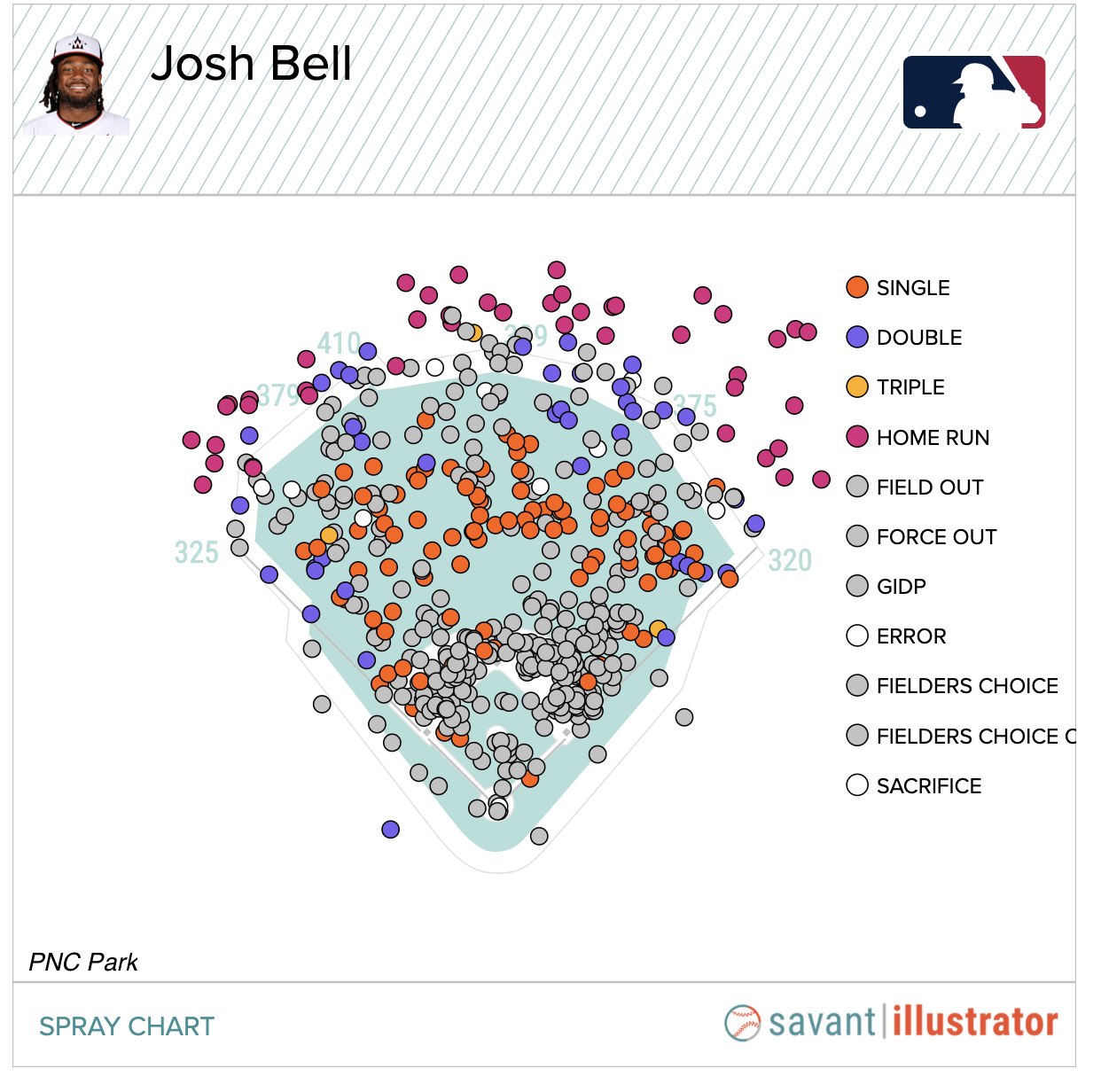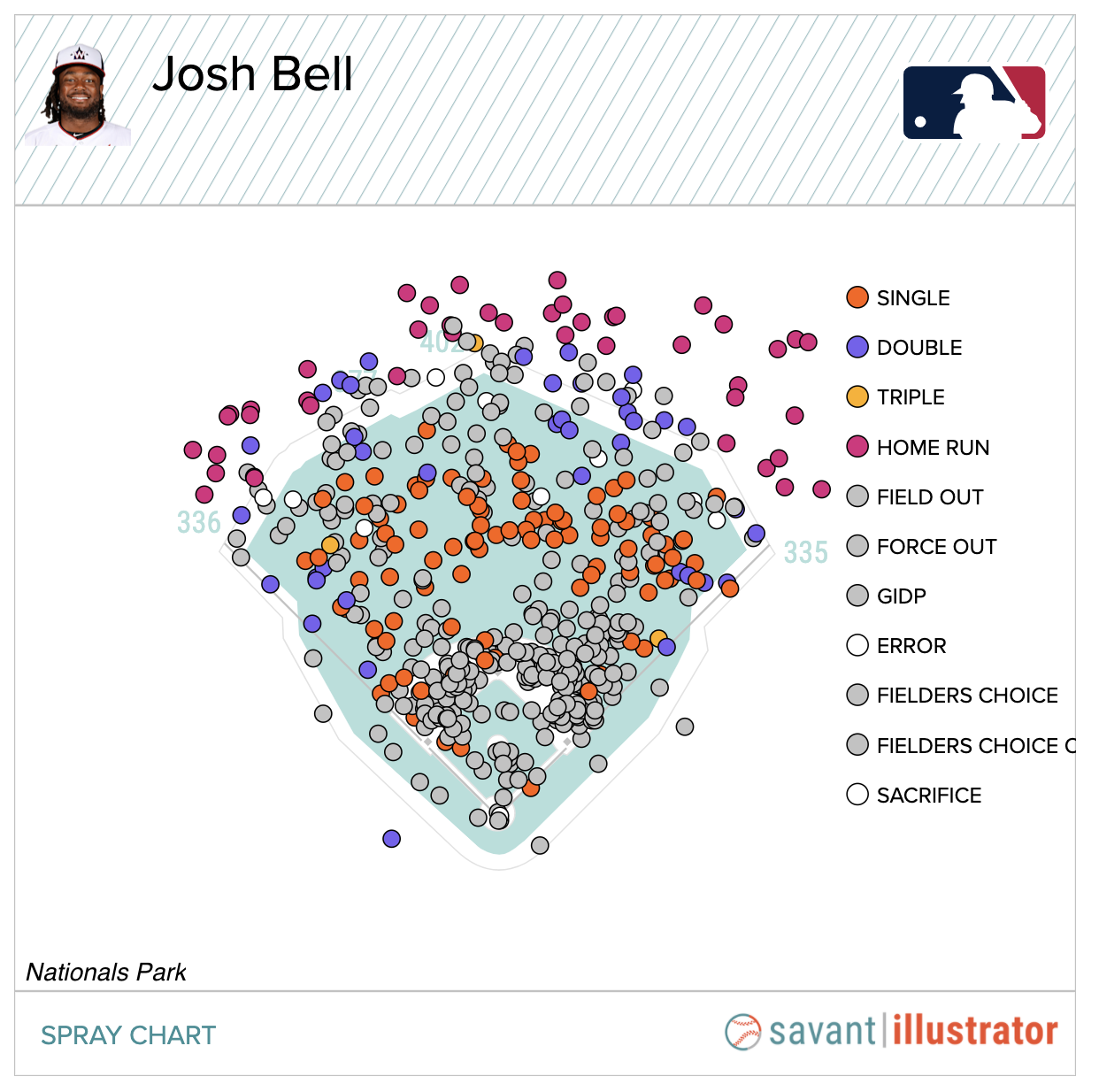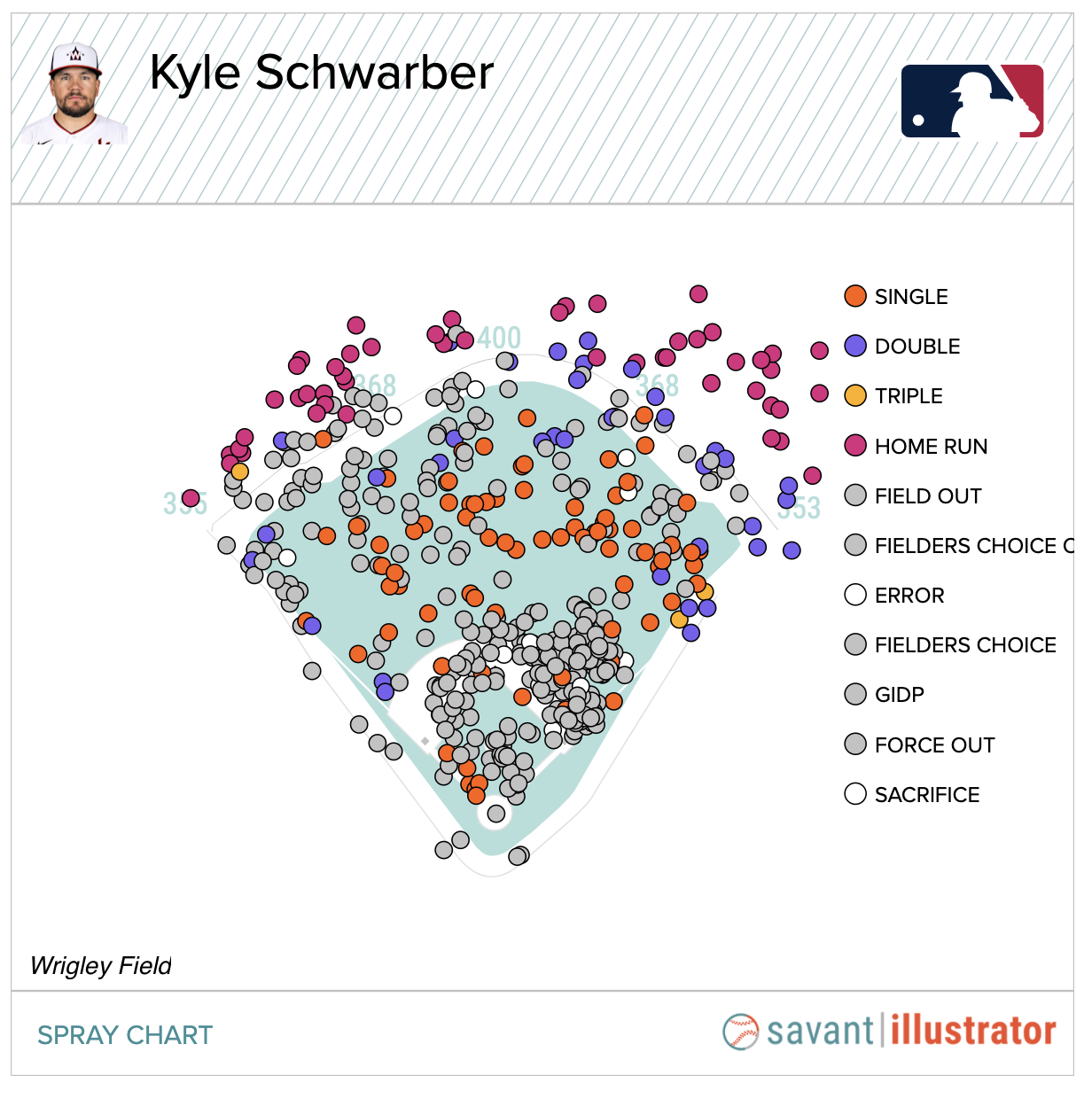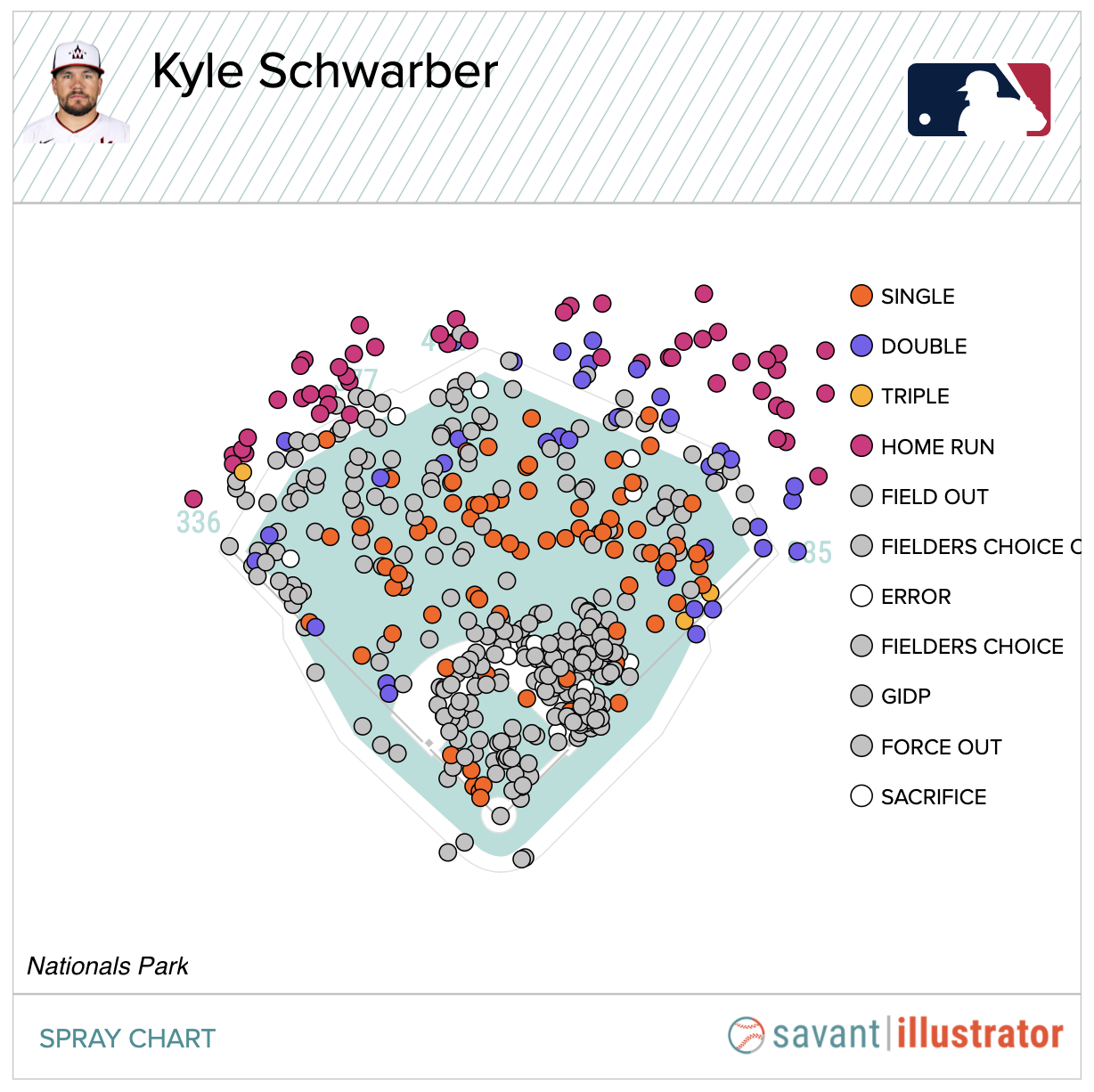Connelly Doan evaluates four hitters who switched teams in the 2021 MLB preseason to determine their fantasy baseball draft value.
Well, the 2021 off-season has finally come to life! Over the course of January, we have seen some big splashes, both in terms of pitchers and hitters on the move to new teams. There are still plenty of unsigned big-name free agents, but we have some juicy free agent hitter signings and trades to take a look at.
A hitter's overall value is mostly derived from their own skills, but there are a few other factors that influence their fantasy value. The main factors include the hitter's home ballpark as well as the quality of the hitters around them in the lineup. As such, a hitter moving to a new lineup, new roster, or new ballpark could have a meaningful impact on their fantasy production.
In this article, I will take a deep dive on a few hitters who have already been traded or signed to a new team this off-season. I will first recap their 2020 season, then assess how their new team and ballpark could impact their fantasy value for the 2021 season. I chose not to write about Fransisco Lindor because, while his move to the Mets will definitely have some positive fantasy implications, he is an elite fantasy player who would have been drafted highly regardless of what team he played for. Let's take a look at a few other interesting names.
Be sure to check all of our fantasy baseball lineup tools and resources:- Fantasy baseball trade analyzer
- BvP matchups data (Batter vs. Pitcher)
- PvB matchups data (Pitcher vs. Batter)
- Who should I start? Fantasy baseball comparisons
- Daily MLB starting lineups
- Fantasy baseball closer depth charts
- Fantasy Baseball live scoreboard
- Fantasy baseball injury reports
Josh Bell, Washington Nationals
The Washington Nationals made a deal on Christmas eve, trading for Pittsburgh Pirates first baseman Josh Bell in exchange for young pitchers Wil Crowe and Eddy Yean. The 28-year-old had a big 2019 season, hitting 33 home runs. 2020 was not as successful, as Bell slashed just .156/.252/.393 with eight HR and 22 RBI. The Nationals will be hoping to see the 2019 version of Bell return; let's quickly take a closer look at Bell's 2020 numbers to see how likely that is.
Starting with Bell's batted-ball profile, there were some good signs. He still managed to hit the ball hard: his exit velocity was in the 87th percentile of baseball, his hard-hit rate was in the 69th percentile of baseball, and the percentage of fly balls he hit at least 100 MPH increased from 38.6% to 43.6%. Unfortunately, Bell wasn't able to hit the ball in the air; his 5.9-degree launch angle was the lowest of his career. Further, while Bell did not hit as well overall compared to 2019, he really did a poorer job hitting non-fastballs.
Bell's issues seem like they could be partially rectified simply from regression in his launch angle and production against non-fastballs, especially if he continues to hit the ball hard.
| Year | Pitch Type | % Pitches | HR | BA | SLG | wOBA |
| 2020 | Fastballs | 54.0% | 7 | 0.279 | 0.486 | 0.348 |
| 2020 | Breaking | 26.6% | 1 | 0.174 | 0.239 | 0.221 |
| 2020 | Offspeed | 19.4% | 0 | 0.132 | 0.158 | 0.152 |
| 2019 | Fastballs | 56.4% | 21 | 0.305 | 0.634 | 0.415 |
| 2019 | Breaking | 22.3% | 10 | 0.274 | 0.590 | 0.388 |
| 2019 | Offspeed | 21.3% | 6 | 0.220 | 0.415 | 0.288 |
Turning to ballpark and lineup changes, Bell will be moving from a relatively hitter-friendly park in 2020 in PNC Park to one of the more pitcher-friendly parks in Nationals Park. However, Nationals Park actually favored hitters more so than PNC Park in 2019, so the move may not be all that detrimental to Bell's individual production. Comparing Bell's 2019-2020 spray chart over PNC Park (left) vs. Nationals Park (right), there isn't a ton that stands out one way or the other.
Bell is a better hitter left-handed, so the increased right-field line in Nationals Park may hurt him slightly. However, the slightly shorter distance to the left-field power alley might help Bell's right-handed numbers.
The main benefit for Bell with this move is that he finally gets to leave one of baseball's worst offenses in favor of an above-average one. The Nationals have plenty of younger hitting talent and will have a bolstered lineup with the return of Starlin Castro, who missed most of 2020 with a wrist fracture and the addition of Kyle Schwarber (who we will discuss later). Bell should hit in the middle of the Nationals lineup, and the overall better lineup around him will allow for more RBI opportunities as well as the opportunity to score more runs. Bell's ceiling is limited by his low career batting average, but this is the best lineup he's ever hit in. He is currently being drafted at pick 178 overall, making him the 19th first baseman off the board. Overall, Bell's value seems fair to this point, but his new team certainly gives him some more upside.
Kyle Schwarber, Washington Nationals
Another new Nationals player is also worth a discussion here. Former Chicago Cubs outfielder Kyle Schwarber signed a one-year deal with the Nationals to fill a starting outfield hole as well as to add power to their lineup. Like his new teammate Bell, Schwarber had a career 2019 season, slashing .250/.339/.531 with 38 HR and 92 RBI. Also like Bell, Schwarber had a disappointing 2020 season; he did hit 11 HR with 24 RBI, but he also slashed .188/.308/.393. Will the Nationals get the slugger they bargained for?
A few things stand out from Schwarber's 2020 season. First, despite his extremely high 29.5% strikeout rate, Schwarber maintained a solid 13.4% walk rate and had a similar contact rate of 73.7% compared to his 2019 mark of 73.9%. He has always struck out too much, so it was good to see him making contact despite the strikeouts. Specifically, he continued to make hard contact; his exit velocity and hard-hit rate were both in the top 15 percent of baseball. Some stats that were much lower than his career averages were his launch angle at 8.8 degrees compared to career 14.7 degrees, his percent of fly balls hit at least 100 MPH at 36.4% (his lowest over the last four seasons), and his .188 batting average compared to a .230 career mark. All this considered, Schwarber showed some solid underlying metrics and vastly underperformed in others, which makes me think it would be reasonable to expect some positive regression in 2021.
Schwarber's new home park will definitely provide some benefits, as Wrigley Field was one of the most pitcher-friendly parks over the past few seasons. The shorter dimensions on the right side of the field should favor Schwarber's left-handed power. His new lineup will also provide an upgrade to potential RBI and run opportunities, though not as much of an upgrade as Bell will receive, given that the Cubs have had decent lineups over the past several seasons.
There are a lot of things to like about Schwarber's new team and the potential production he can generate with them. He looks to be due for some positive regression, his home ballpark will be more favorable to his power, and he will likely be hitting in the top half of a better lineup. As icing on the cake, Schwarber is currently being drafted with the 199th overall pick. Per Nick Mariano's Expected Draft Values research, a power hitter taken with the 199th pick would be expected to hit .245 with 29 HR, 69 runs scored, and 74 RBI. Aside from the batting average, these numbers seem like a floor for Schwarber. If he performed close to as well as he did in 2019, he would return top-100 value. Even if he performs somewhere in between, which seems perfectly reasonable, he would be a great value pick at 199.
James McCann, New York Mets
As fantasy players are well aware, catcher is often one of the most shallow positions in terms of solid production. However, James McCann played well in his two seasons with the White Sox, batting a combined .276 with 25 HR and 75 RBI over 587 plate appearances. McCann used that performance to cash in during free agency, signing a four-year deal with the Mets, a team that has made a number of big moves to this point. How will McCann fit in with the new team?
There isn't a ton to analyze in terms of McCann's 2020 campaign. He hit the ball fairly hard; his 90.5-MPH average exit velocity and 47.8% hard-hit rate were both eighth amongst catchers with at least 50 batted-ball events. He also saw a jump in his HR/PA from .038 to .063. This could be due to an increase in his average launch angle from 10.8 degrees to 15 degrees. McCann still struck out too much at 27%, but he should continue to be a productive hitter if he hits the ball as hard as he does, as justified by his .312 career BABIP.
The biggest impact of McCann's move on his fantasy value is that he should the clear-cut starting catcher. During his last season with the White Sox, McCann shared time behind the plate with Yasmani Grandal. While it is not expected that catchers will play every day, McCann should now receive the majority of at-bats from the catcher position for the Mets. The park dimensions of Guaranteed Rate Field and Citi Field are pretty similar, and while Guaranteed Rate Field favored hitters slightly in 2020 compared to Citi Field, the parks played pretty similarly (1.060 park factor for the first per ESPN, 0.987 for the second).
In terms of lineup changes, the White Sox had an above-average offense in 2020, but the Mets had one of baseball's best. Their lineup should be even better than last season with the addition of McCann and Francisco Lindor. In sum, even if McCann hits in the bottom of the Mets lineup, he will be hitting in one of baseball's best. McCann is currently being drafted at pick 194 overall, or the 12th catcher off the board. Given his performance over the past several seasons and his improved lineup, McCann could certainly be a top-10 catcher in fantasy this season. With the 10th catcher currently being drafted at pick 166, this makes McCann a solid value pick.
George Springer, Toronto Blue Jays
I've saved the biggest move for last. One of the biggest names heading into free agency, George Springer signed a six-year deal with the Toronto Blue Jays. One of the perennial higher-end fantasy players, Springer put together a .265/.359/.540 slash line with 14 HR and 32 RBI on an Astros team that was one game away from the World Series. Now moving to a Blue Jays team with some young talent and potentially more moves on the way, what does Springer's fantasy value look like for 2021?
Springer got off to a slow start in 2020, hitting a mere .200 with four HR in the first half of the season. However, he picked things up in the second half, hitting .312 with 10 HR, ending the regular season with a batting average close to his career .270 mark. He still hit the ball relatively hard (average exit velocity in 48th percentile in baseball, hard-hit rate in 68th percentile), but hit hard fly balls with less frequency, as his rate of fly balls hit at 100+ MPH dropped from 43.2% to 30.4%. However, his average launch angle jumped from 10.4 degrees to 18.3 degrees, so his HR/PA only dropped a bit from 2019 (.063 vs .070). When you put it all together, Springer ended up producing what would be expected of him, more or less.
Moving on to Springer's new home, it is hard to say how the home field change may affect Springer, given that the Blue Jays did not play their home games at Rogers Centre in 2020. In terms of field dimensions, the parks are pretty similar, although Springer will lose the short-porch in left field at Minute Maid Park. However, Minute Maid Park was one of the most pitcher-friendly parks in 2020, so the move to a new home field may be a good thing for Springer.
While the Astros have had very good lineups over the past recent seasons, they actually only produced middling numbers in 2020, whereas the Blue Jays offense was a higher-end one. If Springer continues to hit at the top of the lineup, as he did for the Astros, he'll have some pretty exciting bats following him in Cavan Biggio, Bo Bichette, Vladimir Guerrero Jr., and Teoscar Hernandez, just to name a few. All in all, Springer is still a high-end fantasy player who should now hit atop an exciting lineup that can hit for average and pop. Springer is currently being drafted at the 57th overall pick, making him the 15th outfielder taken. Given that it would not be unreasonable for Springer to hit .270 with 35 HR and 90-95 RBI, this draft value seems totally fair.
Download Our Free News & Alerts Mobile App
Like what you see? Download our updated fantasy baseball app for iPhone and Android with 24x7 player news, injury alerts, sleepers, prospects & more. All free!

More Fantasy Baseball Advice





 RADIO
RADIO




























